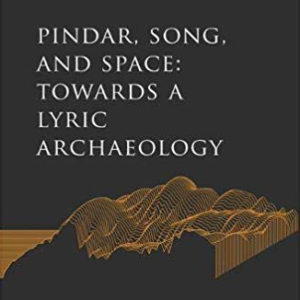In Pindar, Song, and Space (Johns Hopkins, 2019), Leslie Kurke and coauthor Richard Neer develop a new, integrated approach to classical Greece — a “lyric archaeology” that combines literary and art-historical analysis with archaeological and epigraphic materials.
The focus of their study is the poet Pindar of Thebes, best known for his odes in honor of victors at the Olympic Games and other competitions. While recent classical scholarship has tended to isolate poetry, art, and archaeology, Kurke and Neer show that these distinctions are artificial. They argue that poems, statues, bronzes, tombs, boundary stones, roadways, beacons, and buildings worked together as a suite of technologies for organizing and inhabiting space that was essentially political in nature.
LESLIE KURKE is the Gladys Rehard Wood Professor of Classics and Comparative Literature at the University of California, Berkeley. She is the author of The Traffic in Praise: Pindar and the Poetics of Social Economy. Her essay “Plato, Aesop, and the Beginnings of Mimetic Prose” appeared in Representations 94.
RICHARD NEER is the Barbara E. and Richard J. Franke Distinguished Service Professor in Art History, Cinema and Media Studies, and the College at the University of Chicago. He is the author of The Emergence of the Classical Style in Greek Sculpture. His essay “The Lion’s Eye: Imitation and Uncertainty in Attic Red-Figure” appeared in Representations 55.

